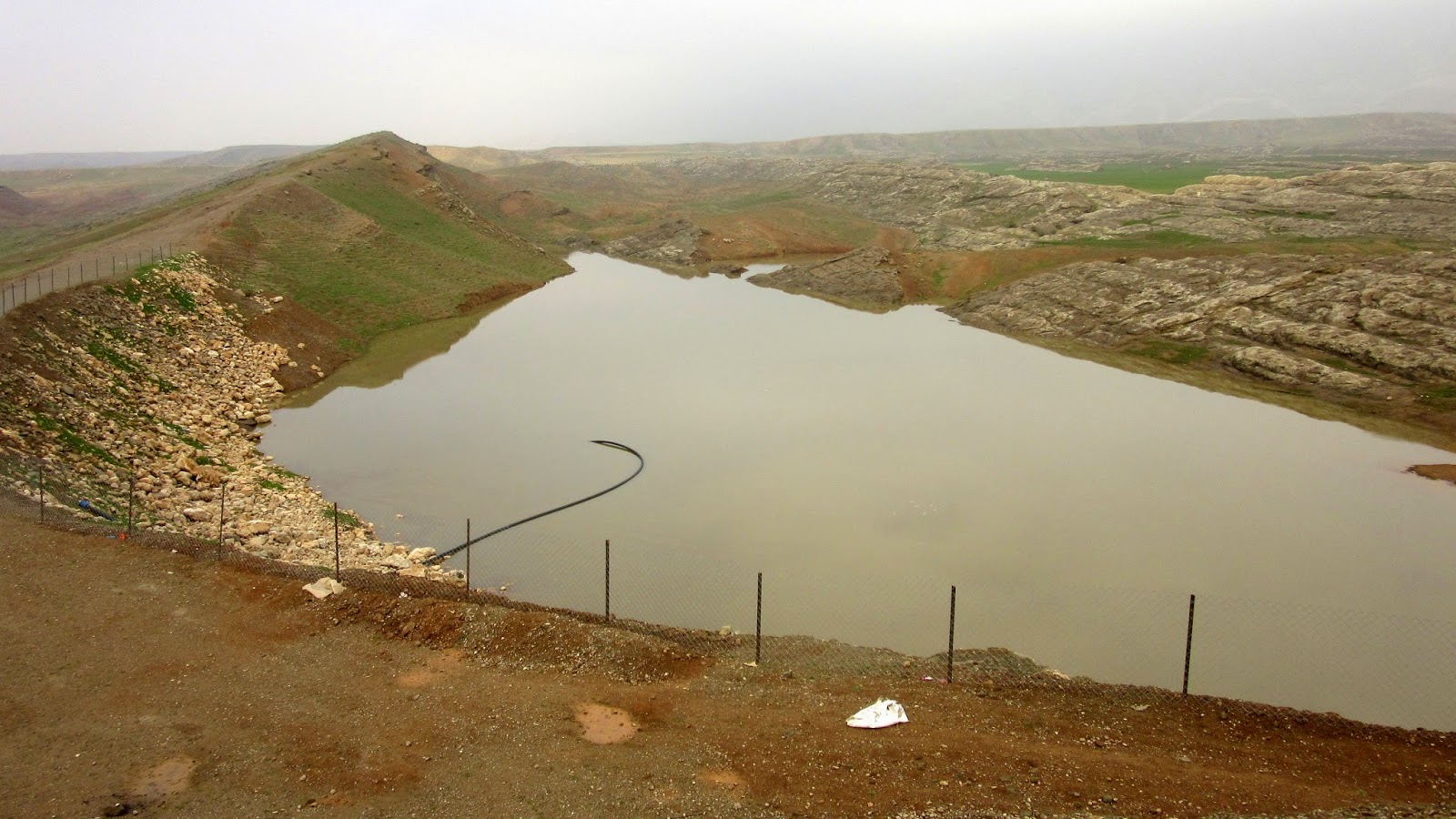The problems facing Iraq aren't all about the Islamic State group (known here as
Daesh, the Arabic acronym). The needs for improved agriculture, education, rule of law, and other systemic problems that existed before the crisis -- both natural and human-made -- are still here. Similarly, although MCC's work has expanded to respond to the crisis, the long-term and ongoing work that it was doing before is still happening, and will continue into the future.
Among these ongoing projects, MCC currently partners with two Iraqi organizations (REACH and ZSVP) to improve the viability of small farmers and rural households by both increasing their production of vegetables, crops, and livestock and improving their access to reliable water resources. REACH is working in Erbil and Suleimaniya governorates, while ZSVP is working in Dohuk and northern Ninewa governorates. Some of these locations are very close to the front lines, while others are relatively isolated. In the words of one project participant, "whether
Daesh is near or far away, we are still just farmers with no money."
 |
Shireen, a 56-year-old widow and head of a 10-person household, is from a village in Sinjar, very near the region that is controlled by the Islamic State group. She received five beehives from ZSVP in February 2014. "I harvested thirty kilos of honey in the end of July 2014. I sold ten kilos for $25 each. On 9 August, the terrorist groups controlled Sinjar and surrounded our village for about two months. During this time we did not receive any support or help. So we benefited from the remaining honey production (twenty kilos) to feed our kids at that crucial stay, and I also helped my neighbors in the village. So the project production was really a good income and supported the kids to survive."
Of the 25 beekeeping project participants in the Sinjar region, ZSVP has not been able to contact 14 since the Islamic State group advanced in August 2014. (Photo credit: Dr Abid Hasan). |
 |
| Joanna, a widowed mother of four girls and four boys, has doubled the size of her kitchen garden since ZSVP helped her establish it in early 2014, and she used the information from a training to create a makeshift greenhouse (at her feet) to start tomato and pepper seedlings. She lives in a Yezidi village in the Kurdish-controlled region of Ninewa governorate, about 30 kilometers from territory controlled by the Islamic State group. |
The types of activities that take place through these projects are varied. Direct agricultural activities include family kitchen gardens, community nurseries and greenhouses, beekeeping, backyard poultry, and tomato cultivation. Water source protection and improvements include constructing irrigation channels and rainwater weirs, installing drip irrigation systems, and renovating water sources (like springs and shallow wells) and household plumbing systems. Projects also include trainings for the participants on everything from how to divide and establish new bee swarms to particular regional pests that damage tomatoes. ZSVP and REACH also work with the local communities to increase their collective organization and access to resources in general. For example, the community-based organization (CBO) in Aly Zangan village (with the rainwater weir below) successfully advocated to the government to provide national electricity in their rural village.
 |
| The MCC learning tour visit in October 2014 observed the rainwater weir in Aly Zangana village soon after its construction was completed just before the onset of the rainy season. Although the villagers were not sure how much water the weir would reserve, one said, "we will share the water until the last drop." (Photo credit: Ruth Keidel Clemens). |
 |
| We visited again in February 2015; the weir is 2 meters from its full capacity, and the villagers have installed the fence around its perimeter that they had mentioned wanting in October to protect children and animals from danger. |
There has been over a decade of drought in northern Iraq, which has exacerbated the hot and dry summers, lowered the water table, and reduced the productive capacity of crops. This is compounded by problems caused by the disputes between the Iraq and Kurdistan governments, which has resulted in a reduction of subsidies for farmers and, in 2014, a complete lack of payment by the government for any of the crops that it collected from farmers. After being denied an entire year's income, it is not surprising that most farmers are skeptical about footing the start-up costs for the 2015 season. The Kurdish military forces (known as the Peshmerga) also recruit among rural farmers: in one 14-family village, there are 16 men enlisted in the Peshmerga. This both decimates the available labor market and hamstrings the viability of village life, resulting in mass migration from rural to urban settings.
 |
| A repaired irrigation canal in rural Suleimaniya governorate enabled 25 farmers to plant rice instead of wheat in their collective fields. With rice selling for ten times as much as wheat on the local market, this water resource provided a substantial improvement in their income generation. |
 |
| This picture, taken in August 2014 at the height of the dry season, contrasts irrigated fields with the surrounding landscape. |
As Westerners, we often romanticize the rural agrarian life and gloss over the fact that this life is unimaginably difficult in many ways.
Daesh is never very far from the consciousness of these Iraqis, but dry wells, salty soil, dwindling villages, lack of schools, cheap imported vegetables, and government neglect is a direct threat to their livelihoods. "We want a green economy, not an oil economy," says one participant, "but the government will not help us."






























